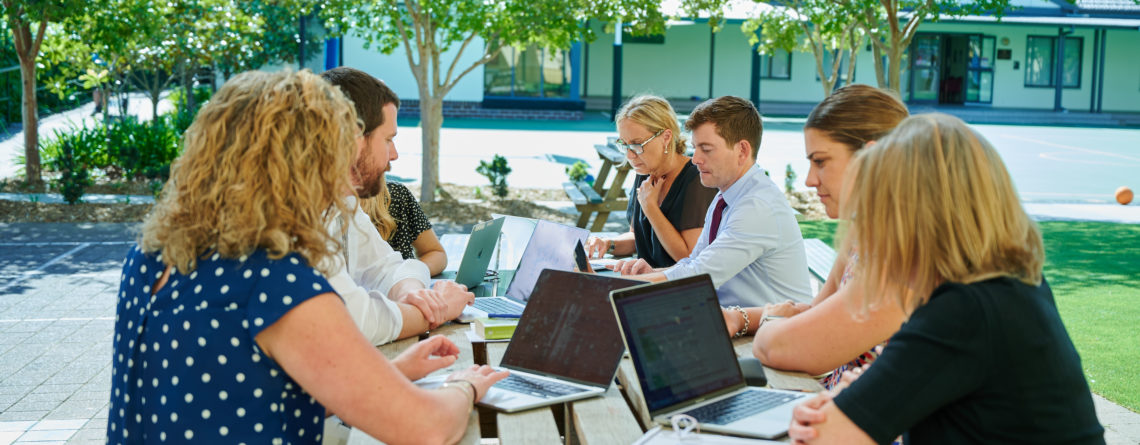The Voice Survey results drive change at Trinity
Each year, staff across Trinity’s campuses have the opportunity to share their thoughts about the operations, progress, and future of the School through The Voice Survey.
Now in its fifth year at Trinity, the survey is conducted by an independent provider of employee engagement, employee lifecycle, customer service and 360 leadership surveys: The Voice Project. The results are benchmarked against some 30 other independent schools, most of which are in Sydney. At its heart, the survey seeks to get a true snapshot of what it’s like to work at Trinity and understand what’s needed to improve the experience.
Through 92 agree / disagree questions, three open-ended questions and six demographic questions, the survey seeks to find answers to four, overarching questions:
- Is Trinity making progress?
- Is this issue the same across the School or is it just an individual team?
- Is this issue unique to Trinity or is it an issue for other independent schools?
- Is this issue unique to independent schools or is it characteristic of society?
Annually, Head Master Tim Bowden presents the results at an All Staff Day at the start of Term 2. This year he reiterated how important the survey is to life at Trinity.
“It seems to me that this is of great value to us as it is open and transparent to us all. The staff experience is one of the key lenses through which we understand the progress of the School, but it’s not the only lens,” he said.
Perhaps more important than having your voice heard is knowing that your words are being listened to and acted upon. One key area that was explored, particularly throughout the last two surveys, was the area of environmental responsibility and sustainability.
Key findings from the 2020 Trinity Voice Survey showed that many staff did not perceive Trinity to have a sustainability programme and that there was a lack of knowledge and awareness surrounding resource usage and sustainability initiatives in place at the time. However, the survey also found that Trinity staff did have a high perception of their own, personal responsibility when it comes to changing their work practices to reduce their own impact on the environment.
In response to the 2020 Voice Survey, the Trinity Environmental and Sustainability Committee formed, dedicated to making change in this area across the School.
This year, in the Voice Survey, it’s clear that the School’s – and the Sustainability Team’s – commitment to making change is being appreciated, across every campus.
When asked whether they agreed with the statement “Trinity is environmentally responsible”, 57% of staff responded favourably, which is a 24% gain on the previous year.
When asked whether they agreed that “Trinity uses its resources, e.g. paper, water, energy, in a sustainable way”, 51% responded favourable, a 21% gain on the previous year – although it is still one of Trinity’s least favourably answered questions.
83% of respondents agreed that they had made changes to their work practices to reduce their use of Trinity’s resources – a 5% gain on last year’s survey and 20% higher than the benchmark.
“The big improvement on last year was environmental responsibility and sustainability, up 16% which took us from way below the benchmark to clearly above it,” Mr Bowden said, suggesting that this improvement could be attributed to the work of the sustainability team.
“Stephen Heanly (Head of Operations) has led this initiative for us, along with a team from across the school, to try and work out how we shift this agena higher on our priorities? There were a number of initiatives that we put in place, responding to your feedback and we saw good progress.
“The Green Patch initiative in the Junior School, the shift to recyclable packaging in the cafeteria, the sorting of rubbish into different bins – all of these things were different things that we had in play and which are part of the suite of ways we are trying to shift the School to be more environmentally responsible.”
The success of the sustainability initiatives so far gives all staff a glimpse into the power of the Trinity Voice Survey.
“Substantial changes take lead time and need resource allocation, change management processes, risk management, and all sorts of things, which means that it comes slowly. But it will come. The Voice Survey is a rich source of data for us all.”
Want to know more about working at Trinity? Check out all the employment opportunities available.
















